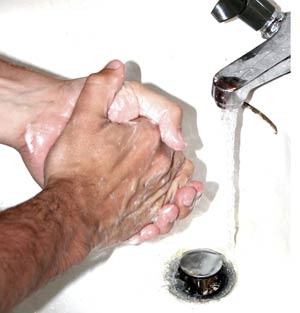Explaining why you should take RSF courses—ones that teach you how to safely and responsibly handle food before, during, and after preparation—isn’t hard to do. Knowing how to handle food safely prevents illness and can even be immensely useful for home cooks. In fact, taking an RSF – food handling course can benefit anybody.
Storing Food Responsibly
The biggest dangers in food handling aren’t a part of the cooking process at all. Rather, they’re all tied to how well the food is stored before and after being cooked. By and large, bacteria and mould cannot grow on food that’s boiling hot, but food is never that hot for long.
Food is most susceptible to contamination when it is cooler than cooking temperature, and especially when it is at or slightly above room temperature. Keeping food cool in a refrigerator or a cooler greatly slows down the growth of bacteria and mould, which is why you should put most ingredients and prepared food into a cool environment as quickly as possible if it’s not going to be eaten right away.
However, plenty of ingredients respond differently to storage. For instance, potatoes, tomatoes, onions and some other kinds of produce shouldn’t be stored in the fridge, but rather in a dry place. Potatoes’ starch turns into sugars when they’re too cold, which changes the flavour for the worse and makes the potato mushy, while cooling damages the cell walls of tomatoes and onions, making them mealy, flavourless and more prone to spoilage.
Freezing, too, has its issues. Some foods, especially meats, can only stay frozen for so long before they become rubbery and lose their flavour. Other ingredients and dishes cannot stand being frozen at all. Food storage is a tricky subject at best, and safe storage is a major part of what’s taught in RSF courses.
How to Cook Food Safely
Cooking itself, clearly, is also something that you need to learn how to do safely and responsibly. Meats, especially seafood, often need to reach a certain temperature, specific to the meat, during cooking in order to ensure that cooking will have destroyed any normal contaminant such as bacteria or parasite eggs.

An RSF – food handling course will teach you all the basics of hygienically handling, storing, and cooking food. In addition, you’ll learn how to keep your kitchen and storage areas clean so that environmental contaminants can’t get in. Counters, sinks, and even knives can be vectors for contamination, so you should know how to disinfect them!
Learning how to safely handle food isn’t hard, either; the course is only one day long. If you’re serious about starting a career in the hospitality industry or just want to know how to keep yourself safe from food poisoning, you should think about enrolling in an RSF – food handling course with RSA Melbourne.




